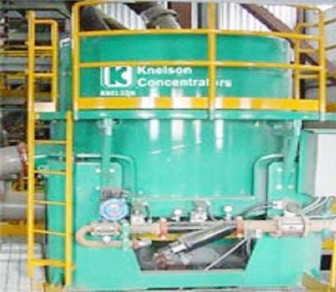Local miners have already come to terms with the inevitability of a mercury-free gold mining sector in Guyana in the foreseeable future but are seeking government’s support to lobby the international community to protect the industry against any ban on the purchase of gold produced through the application of mercury, Guyana Gold & Diamond Miners Association (GGDMA) official Colin Sparman told Stabroek Business in an exclusive interview earlier this week.
Following a meeting between senior GGDMA officials and President Donald Ramotar on Thursday, August 2, a joint statement committed the Ramotar administration to not banning mercury imports from Guyana. However, Sparman told Stabroek Business that whether or not a formal ban was imposed on mercury importation was not important. What is important, he said, is getting government’s support in protecting the industry against such reprisals as might arise on the international market which might target gold production that is associated with mercury.
“We have spoken with government on the issue of lobbying external stakeholders to allow for a period – perhaps three to five years – during which we will continue to work with mercury while looking at other appropriate technology,” Sparman said.

Just how much a ban on the importation of mercury will affect the local mining sector, at least in the short term, is questionable since, this newspaper understands, there may be sufficient stockpiles available locally to last a considerable period. An industry source told this newspaper that “around half a dozen people associated with gold mining” currently import mercury and that it is imported into the countries in quantities that are sufficiently significant to allow miners in Suriname to acquire mercury here.
Arising out of last week’s meeting between the GGDMA and President Ramotar, a joint statement issued at the end of the deliberations provided, among other things, an undertaking that the government will not ban the importation of mercury. Sparman told Stabroek Business that while the Association had noted the undertaking it was more concerned, first, that government seek to protect the gold-mining industry from such reprisals as might arise from the continued use of mercury in the immediate term and secondly that the GGMC seek to research alternative technologies that would locate the industry in a position to terminate the use of mercury in the shortest possible time. Sparman said that while the GGMC has been talking a great deal about pursuing such alternatives not a great deal has been done in practical terms.
At the weekend and in the wake of the undertaking given in the joint statement that alternatives to mercury will be pursued for the mining sector, the GGMC published a notice inviting “medium and large scale miners to submit proposals to undertake responsibility for the operating and management of two Knelson Concentration Processor Plants which employ gravity separation technology in the gold recovery process. Stabroek Business has learnt that the plant reportedly used worldwide in the mining industry has been tried by large scale miners with only limited success given the density of the soil that obtains in the local mining industry.

Knelson Concentrator unit capacities range from laboratory scale to 1000 tonnes of solids per hour, though local miners have reported less than encouraging results.(Knelson web site)





